Nakṣatra
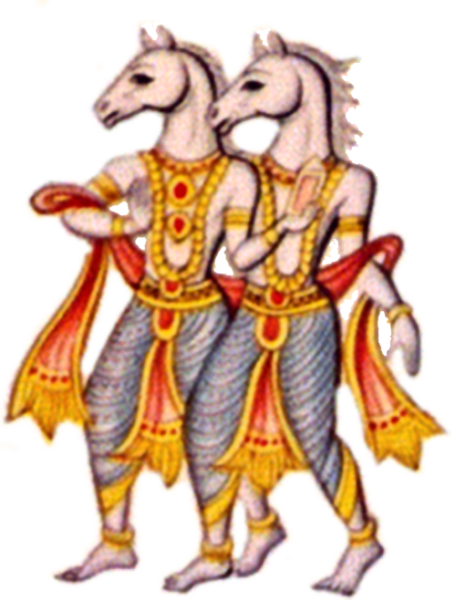 Aśvinī Nakṣatra spans from 0° – 13°20’ Aries and has four pada also called charana each measuring 3°20’.
Aśvinī Nakṣatra spans from 0° – 13°20’ Aries and has four pada also called charana each measuring 3°20’.
1st Pada: 0° – 3°20’ Aries Rasi Aries Navamsa
2nd Pada: 3°20’ – 6°40’ Aries Rasi Taurus Navamsa
3rd Pada: 6°40’ – 10° Aries Rasi Gemini Navamsa
3rd Pada: 10° – 13°20’ Aries Rasi Cancer Navamsa
Results of different planets in Aśvinī Nakṣatra is given below. These results give an idea of how these planets behave and in order to understand then, consider the placement of the planet in rasi and navamsa.
1.01 The Sun (Surya)
If the aspect of Mars (Maṅgala) is on the Sun (Sūrya), the nature of the native is cruel. His eyes are large and bloody. The aspect of Mercury (Budha) on the Sun (Sūrya) indicates that the native will lead his life peacefully. He possesses an admirable personality. If the aspect of Jupiter (Bṛhaspati) is on the Sun (Sūrya), the native enjoys the life of a politician. The aspect of Venus (Śukra) on the Sun (Sūrya) indicates the native will indulge in all the luxuries in life. The aspect of Saturn on the Sun deprives the native of necessities in life and makes him underprivileged.
Sun in Aśvinī Pada-1 |0°-3°20’ Aries
If the Sun (Sūrya) is in the first pada (Prathama Caraṇa) the native is said to possess a long life. He is soft spoken; enjoys life with his children and pleasures but suffers from many diseases.
Sun in Aśvinī Pada-2 |3° 20’ – 6°40’ Aries
If the Sun (Sūrya) is in the second pada (Dvitīya Caraṇa), of Aśvinī, it is not a favourable position for the native. He suffers from multitude of problems until the age of 8. The Sun in Aśvinī Nakṣatra generally grants good results but if the Sun (Sūrya) is in the second pada (Dvitīya Caraṇa) the benign effects of placement in this Nakshatra are negated. The native might suffer the consequences of black magic. He might also suffer from a curse, the source of which will be unknown. It indicates downfall from status etc. It is observed that even in a generally prosperous life certain unexpected events begin to occur, due to such a placement of the Sun. This position is unfortunate, as the native might have to beg for a living. This placement might make the native leave his home or native country. Similar results are obtained with Moon in the second pada of this Nakshatra. One obtains excellent results with the aspect of Mars (Maṅgala).
Sun in Aśvinī Pada-3 |6° 40’ – 10° Aries
If the Sun (Sūrya) is in the third pada (Tṛtīya Caraṇa) the native is wealthy and prosperous but his life has much mental or physical suffering. He suffers from health problems due to this placement of the Sun and often becomes violent and hardhearted.
Sun in Aśvinī Pada-4 |10° – 13°20’ Aries
If the Sun is in the fourth pada (Caturtha Caraṇa) the native is respected, intelligent, prosperous and a leader. Immense popularity is indicated with this placement of the Sun. He is spiritual and has an unsullied mind with pristine thoughts. He is dutiful and completes all tasks successfully displaying excellence in all work. This placement indicates residence outside one’s native country. Change of fortune in old age is indicated. If the Sun (Sūrya) is in the 10th or 11th degree of Aśvinī Nakṣatra then its results are fabulous.
1.02 The Moon (Chandra)
Aspect of the Sun (Sūrya) on the Moon (Chandra) indicates that the native is compassionate but maybe harsh in his speech. If the aspect of Mars (Maṅgala) is on the Moon (Chandra) then he does something very innovative or special for the benefit of society. The aspect of Mercury (Budha) on the Moon (Chandra) indicates that the native is blessed with all material and physical pleasures such as money, popularity, etc. The aspect of Jupiter (Bṛhaspati) makes one an intellectual. The native is keen to share his knowledge with others. If the aspect of Venus (Śūkra) is on the Moon (Chandra), the native becomes wealthy and co-habits with women from the higher strata of society. If the aspect of Saturn (Śani) is on the Moon (Chandra), his physical health is poor. The native will be callous and brusque with his relatives. Such a position of the Moon indicates lack of progeny.
Moon in Aśvinī Pada-1 |0°-3°20’ Aries
If the Moon (Chandra) is in the first pada (Prathama Caraṇa) the native is captivating and possesses a personality worth emulating. The native is highly principled and maybe an advisor to people in position of authority and power. Such a placement of the Moon indicates someone working in the area of administration. The lagna and Moon placed together in the 1st pada of this nakshatra, with the aspect of Jupiter on the pada, indicates longevity of more than 82 years. Moon in the first pada of the nakshatra indicates suffering due to blood and eyes related diseases. The native is an efficient worker but may not receive due recognition from co-workers and subordinates. Aspect of Jupiter (Bṛhaspati) on the Moon (Chandra) indicates a person who commands a high position in society. Such a person is in a high-ranking position and a leader of thousands of people.
Moon in Aśvinī Pada-2 |3° 20’ – 6°40’ Aries
If the Moon (Chandra) is in the second pada (Dvitīya Caraṇa) the native is tall in stature. He is clever but addicted to intoxicants and fond of spicy food. He suffers on account of women. The native may live in poverty or deprivation for some part of his life. Remedial measures can alter the above situation. The native is highly ambitious and miserly. If Mars (Maṅgala) or Rāhu have a mutual aspect with Moon (Chandra) the wife of the native leaves him at an early age; roughly at the age of 30. If the aspect of Venus (Śūkra) is on the Moon (Chandra) then he is fortunate and he lives with his children. The native will be envious of others’ success and prosperity if the aspect of Saturn (Śani) is on the Moon (Chandra). The native will have face suffering and sorrow in his life.
Moon in Aśvinī Pada-3 |6° 40’ – 10° Aries
If the Moon (Chandra) is in the third pada (Tṛtīya Caraṇa), the native’s field of education is related to the sciences. He may become a religious preceptor or priest. Work keeps him occupied. He is a well-wisher of those who seek him out for advice. The native is a supportive and trustworthy comrade. If the aspect of Mars (Maṅgala) is on the Moon (Chandra) then he suffers due to diseases related to the skin, tooth or ear.
Moon in Aśvinī Pada-4 |10° – 13°20’ Aries
If the Moon (Chandra) is in the fourth pada (Caturtha Caraṇa) the native is highly educated and wise. If the Sun (Sūrya) is not in the fourth pada (Caturtha Caraṇa), with the Moon (Chandra) this position is favourable. He is proficient in multiple branches of science and technical education. The native is highly educated by virtue of his hard work and abilities. He is extremely dedicated to his work. If the Moon (Chandra) is in the last ansh (aṁśa) of Aśvinī Nakṣatra, the native becomes a physician, engineer or a high-ranking official in the government.
1.03 Mars (Maṅgala)
If the aspect of the Sun (Sūrya) is on Mars (Maṅgala) the native respects his parents, is modest and wise. If the aspect of Mars (Maṅgala) is on the Moon (Chandra), he is guilty of extra-marital relationships. The native is callous, antagonistic towards people in general, and deceptive by nature. If the aspect of Mercury (Budha) is on the Moon (Chandra), he is bombastic, proud and lives with women of a questionable character. If the aspect of Jupiter (Bṛhaspati) is on the Moon (Chandra), he is the head of his family. This aspect blesses the native with wealth and unique privileges. The native is deprived of healthy food and prosperity if the aspect of Venus (Śūkra) is on the Moon (Chandra). He is ostracized by society and his family due to his association with and ill-treatment of women. He may become a competent social worker. If the aspect of Saturn (Śani) is on Mars (Maṅgala), the native is deprived of parental love and is separate from his family.
Mars in Aśvinī Pada-1 |0°-3°20’ Aries
If Mars (Maṅgala) is in the first pada (Prathama Caraṇa) the native is short in stature. The native achieves success and pre-eminence in his business and career. He is respected and reputed in the society. The native is fortunate in health-related matters. He obtains advanced degrees in the area of science and mathematics. He may also succeed in the army or any team related activity, if he chooses to take it up.
Mars in Aśvinī Pada-2 |3° 20’ – 6°40’ Aries
If Mars (Maṅgala) is in the second pada (Dvitīya Caraṇa) the native is indigent. He is bereft of progeny but attempts to be blessed at least with 1 child. Such a native normally has one or two love interests in the course of his lifetime. He might be vengeful. He suffers from fear of fire and water. He might meet with unexpected accidents or illness. The native might have a mole or distinguishing mark on this face.
Mars in Aśvinī Pada-3 |6° 40’ – 10° Aries
If Mars (Maṅgala) is in the third pada (Tṛtīya Caraṇa) the person becomes a businessman. He might live far away from his native place of birth and this would prove to be beneficial for the native. If the aspect of the Sun (Sūrya) is on Mars (Maṅgala), the native leads a healthy life with prosperity and a stable marriage. Aspect of Sun, especially from its sign of debility, on Mars causes lowly qualities and crudeness. If the aspect of Jupiter (Bṛhaspati) or other benefics is on Mars (Maṅgala) the mother of the native dies during the native’s childhood. The native indiscriminately spends money on luxuries and indulgences.
Mars in Aśvinī Pada-4 |10° – 13°20’ Aries
If Mars (Maṅgala) is in the fourth pada (Caturtha Caraṇa) the native enjoys a life filled with pleasures. This placement of Mars indicates that work will keep the native constantly occupied. Modesty is one of his virtues. He might suffer from of blood related diseases. The native becomes an engineer if his birth is in the 11th or 13th degree of the Nakṣatra. The native is likely to have more female rather than male progeny. He inherits paternal property if Jupiter aspects this placement of Mars.
1.04 Mercury (Budha)
If the aspect of the Sun (Sūrya) is on Mercury (Budha), the native is popular amongst his relatives, is truthful and may benefit from the Government.
If the aspect of the Moon (Chandra) is on Mercury (Budha), the native is interested in music and poetry and he might earn money through modern art. He has possesses varied comforts such as vehicles, garments, ornaments and built-up property. He might have love affairs with women from the higher strata of society or who are wealthier than he is.
If the aspect of Mars (Maṅgala) is on Mercury (Budha), the native might be an influential person in the government. If the aspect of Jupiter (Bṛhaspati) is on Mars (Maṅgala), he may belong to a highly respectable, wealthy and large family. If the aspect of Venus (Śukra) is on Mars (Maṅgala) then his conduct is above board and the native may attain popularity among the masses. The aspect of Saturn (Śani) on Mars (Maṅgala) makes him a very competent social worker. The downside of such a placement of Mercury is that the native may be hardhearted. He may be dragged into controversies as he starts to wield more power.
Mercury in Aśvinī Pada-1 |0°-3°20’ Aries
If Mercury (Budha) is in the first pada (Prathama Caraṇa) the native is an atheist. He has very low standards of morality, indulges in alcohol, and partakes in illicit relationship with women. This is an unfortunate position indicating insult and humiliation due to his dishonesty. He is a difficult person to live with because of his uncooperative nature. The aspect of Moon (Chandra) makes the native characterless. The aspect of Jupiter drastically alters the results. Such a person is highly educated, earns well and is well off. He has a philosophical bent of mind and is respected in society because of his knowledge (parāmamanovijïāna).
Mercury in Aśvinī Pada-2 |3° 20’ – 6°40’ Aries
If Mercury (Budha) is in the second pada (Dvitīya Caraṇa) the native has a fulfilling life with spouse and children. Opportunities and exposure to learn several branches of knowledge present themselves to the native. The native attains fame of magnificent proportions in his middle age (35 to 40 years.) If the Sun (Sūrya) is in the second pada (Dvitīya Caraṇa), of Aśvinī Nakṣatra with Mercury (Budha), the native earns advanced educational degrees and becomes a physician or surgeon. The native is virtuous with a liberal in outlook towards people and life in general. He maintains sanctity in his relationships.
Mercury in Aśvinī Pada-3 |6° 40’ – 10° Aries
Mercury in the third pada (Tṛtīya Caraṇa), is a very fortunate position that showers the blessings of God himself. The native undertakes and completes several outstanding works. He is responsible and dutiful. The native might have many male children. His health is an area of concern. His longevity is roughly 60 years.
Mercury in Aśvinī Pada-4 |10° – 13°20’ Aries
Mercury (Budha) in the fourth pada (Caturtha Caraṇa), is not a fortunate position. Such a person is characterless and meets with failure in all tasks undertaken. He lacks strength of mind and character. He suffers because of business losses. The aspect of Jupiter (Bṛhaspati) makes the person an author of ordinary caliber, a clerk or a moneylender.
1.05 Jupiter (Bṛhaspati)
The aspect of Jupiter (Bṛhaspati) on the Sun (Sūrya) makes the native righteous and averse to any illegal transactions or dealings. Such a person has high faith in religion and in general, treats people with respect and dignity. The aspect of Jupiter (Bṛhaspati) on the Moon (Caraṇa), makes one famous worldwide and he enjoys immense popularity. In the negative, he might be considered rude in his behavior and guilty of underhand dealings (such as accepting a bribe) from political/government bodies. He is capable of quelling pride in others, with the aspect of Mars (Maṅgala). The aspect of Mercury (Budha) makes him rebellious, rude and short tempered. The aspect of Venus (Śukra) makes the native a businessmen dealing in scented products for women and fond of youthful company. He is deprived of pleasure, wealth and family and subject to severe hard work due to such an aspect.
Jupiter in Aśvinī Pada-1 |0°-3°20’ Aries
Jupiter (Bṛhaspati) in the first pada (Prathama Caraṇa), makes the native highly educated and religious. The native is knowledgeable in the areas of philosophy, spirituality and the scriptures. The native is blessed with a pleasing and appealing voice. Such a position confers charisma making the native the centre of attention. He attains popularity and prosperity after the age of 35 years. The native becomes very wealthy due to support from friends and his paramour. He rises from insignificant or humble beginnings to a position of authority. This position might also indicate a poor financial condition and fear of debt.
Jupiter in Aśvinī Pada-3 |6° 40’ – 10° Aries
If Jupiter (Bṛhaspati) is in the third pada (Tṛtīya Caraṇa) the native is intelligent, well educated, popular and wealthy.
Jupiter in Aśvinī Pada-4 |10° – 13°20’ Aries
If Jupiter (Bṛhaspati) is in the fourth pada (Caturtha Caraṇa) the native is fortunate and enjoys all pleasures of life. He has self-earned wealth and has many people working under him. He is a responsible and caring father. He is dutiful and an engaging speaker. He earns money through an existing or inherited business (career of parent etc.)
1.06 Venus (Śukra)
If the aspect of the Sun (Sūrya) is on Venus (Śukra), the native obtains many benefits from the government. Incompatibility with spouse is indicated and married life might be marred by arguments. The aspect of Moon bestows a political post. He may be of a lowly character, associating with women of disrepute. The aspect of Mars makes him poor and he is deprived of any benefits from his family. The aspect of Mercury may lead to a speech affliction or he may become a liar. This position also confers a long life on the native. History may be an area of interest and he may attain popularity in writing, especially in during old age.
Venus in Aśvinī Pada-1 |0°-3°20’ Aries
Venus (Śukra) in the first pada (Prathama Caraṇa), bestows on the native a sound physical body and friendly nature.
Venus in Aśvinī Pada-2 |3° 20’ – 6°40’ Aries
If Venus (Śukra) is in the second pada (Dvitīya Caraṇa) the person loves his family and friends. He is financially well off with sound sources of income. The above benefits are conferred on him during old age. He becomes an author, painter and lover of art. If the native is provided opportunities for a stable education, he might succeed as an engineer, mediator, or negotiator
Venus in Aśvinī Pada-3 |6° 40’ – 10° Aries
If Venus (Śukra) is in the third pada (tṛtīya Caraṇa) the native is intelligent and wise. He treats people with respect. He might become a doctor, politician or artisan of high and unique abilities and repute. He might suffer from some disease. The aspect of benefic planets indicates the native is loved by many people and will be religious.
Venus in Aśvinī Pada-4 |10° – 13°20’ Aries
If Venus (Śukra) is in the fourth pada (Caturtha Caraṇa) the native is desirous of money. He speaks fluently, is an effective speaker and writer. He is a actor, singer or instrumentalist of high caliber. If the Sun (Sūrya) is in the fourth pada (Caturtha Caraṇa), with Venus (Śukra), his married life might be the cause of his unhappiness. Either such a person marries at a young age or the marriage is sudden and takes place under dramatic conditions.
1.07 Saturn (Śani)
If the aspect of the Sun (Sūrya) is on Saturn (Śani) the native’s livelihood is related to animals. His business is connected to products such as dairy or leather. The native generally performs good Karma in his life. With the malefic aspect of the Sun (Sūrya) paternal happiness may be short lived. The aspect of Moon (Chandra) might lead him to be influenced by people of ill repute. native might be of a cruel nature and he will either be poor or live frugally. The aspect of Mars (Maṅgala) might make the native indulge in gossip. The native might be corrupt and disinclined to help others. If the aspect of Mercury (Budha) is on Saturn (Śani), the native earns money through illegal means. The aspect of Jupiter (Bṛhaspati) bestows on the native a high-ranking administrative post. The native possesses enormous wealth and leads a fulfilling life with a good-natured wife and virtuous children. The will reside abroad with the aspect of Venus (Śukra). He leaves a lasting impression or mark on all people – friends and foes alike. Women love him and his spends his money indiscriminately on them.
Saturn in Aśvinī Pada-1 |0°-3°20’ Aries
If Saturn (Śani) is in the first pada (Prathama Caraṇa) the native is poor during his childhood. He is happy (with kālāntara), although slow and lethargic besides having poor intelligence (does stupid things)
Saturn in Aśvinī Pada-2 |3° 20’ – 6°40’ Aries
Saturn (Śani) in second pada (Dvitīya Caraṇa), makes the native dark complexioned. He has curly hair and a large skull. He might suffer from health-related problems. The native is intelligent and earns well but may not be prudent and enterprising in financial matters. He may be violent and rude in his behavior. He may associate with undesirable people and engage in anti-social activities until his middle age.
Saturn in Aśvinī Pada-3 |6° 40’ – 10° Aries
Saturn (Śani) in the third pada (Tṛtīya Caraṇa), bestows sound business sense on the native. He is a fond of travelling. By nature, he is very helpful and takes care of people working under his supervision. People fondly remember him for his noble work. The native is highly ambitious and might have the predominance of Agni in his body.
Saturn in Aśvinī Pada-4 |10° – 13°20’ Aries
If Saturn (Śani) is in the fourth pada (Caturtha Caraṇa) the native lives a fulfilling life enjoying all the pleasures. The native is religious but his work will not be above board and might engage in bad Karma. He earns money from agriculture if the aspect of the Sun (Sūrya) is on Saturn (Śani).
The person is a great warrior and has great endurance and power. He is truthful by nature if Saturn is in the fourth pada (Caturtha Caraṇa). He may suffer from Gulmaroga, Apacana and Vāyuvikāra. If the aspect of the Sun (Sūrya) is on Rāhu, the native is efficient and responsible in all work he undertakes. Such a position of Saturn makes the native fortunate as friends provide him timely help.
1.08 Rāhu
Rāhu in Aśvinī Pada-1 |0°-3°20’ Aries
Rāhu in the first pada (Prathama Caraṇa), makes the native intelligent. Such a position of Rāhu makes the native healthy. The native is devoted to his father, if Rāhu is in the first pada. Parents constantly support the native. native with such a position might have a prominent mark or mole on his face. The aspect of Rāhu on a malefic planet might make the native prone to accidents but it will not be life threatening.
Rāhu in Aśvinī Pada-2 |3° 20’ – 6°40’ Aries
Rāhu in the second pada makes the native religious. He travels abroad. He might depend on others throughout his life. He suffers fluctuations in his fortune and might be fickle minded and inconsistent. He might suffer from diseases related to the brain, at the time of his death.
Rāhu in Aśvinī Pada-3 |6° 40’ – 10° Aries
Rāhu in the third pada (Tṛtīya Caraṇa), is an unfortunate position, materially, for the native. He is devoid of wealth and marital bliss. He lacks desires, is filled only with thoughts about God and becomes a saint. In the negative, he steals other’s wealth. With the aspect of Jupiter (Bṛhaspati), the native has large hidden wealth. This position makes him cruel. He may be a moneylender or a smuggler and he is happy leading a life engaging in these vocations. He is Jalavivijïānī or knowledgeable about instruments.
Rāhu in Aśvinī Pada-4 |10° – 13°20’ Aries
Rāhu in the fourth pada (Caturtha Caraṇa), gives mixed results.
1.09 Ketu
Ketu in Aśvinī Pada-1 |0°-3°20’ Aries
Ketu in the first pada makes a person highly educated and popular. He earns his livelihood through work related to building and construction and it might be that of a technical engineer or any technical business.
Ketu in Aśvinī Pada-2 |3° 20’ – 6°40’ Aries
Ketu in the second pada makes the native poor but he benefits due to his public relations skills or due to work related to people or masses such as social work.
Ketu in Aśvinī Pada-3 |6° 40’ – 10° Aries
Ketu in the third pada (Tṛtīya Caraṇa), makes the native associate or live with people from the lower strata. Such a position deprives the native of children. The native commands respect in society and is of a helpful nature.





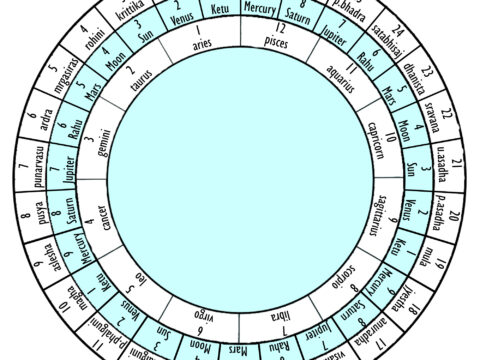


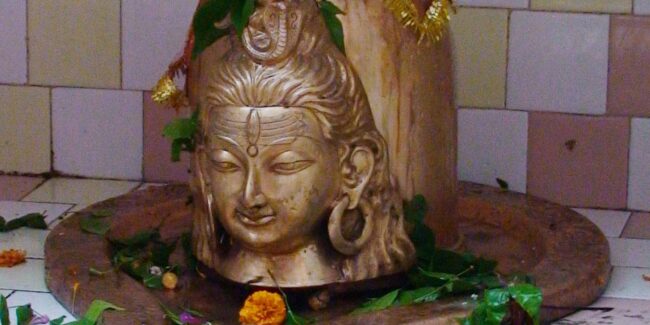
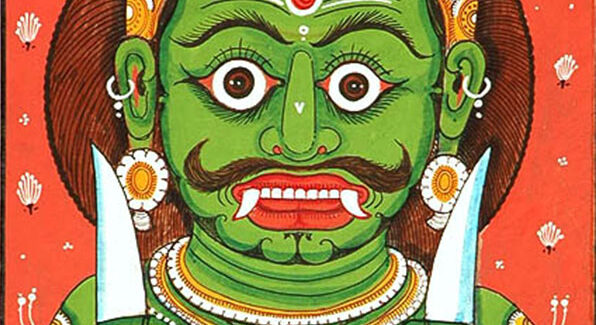
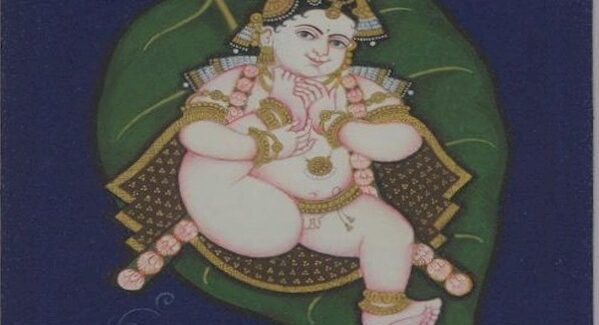
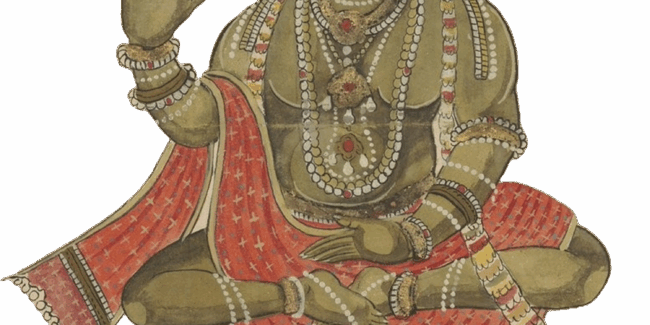
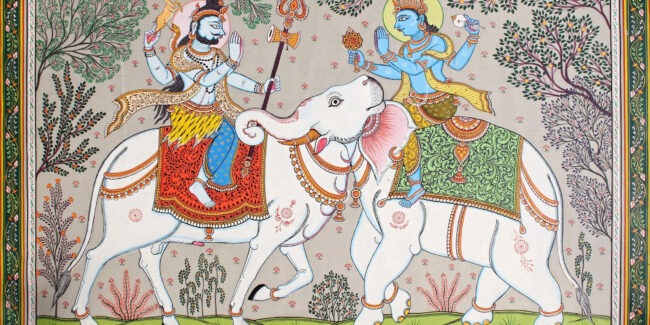
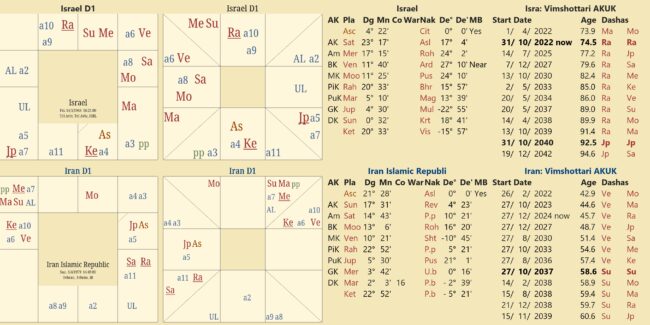
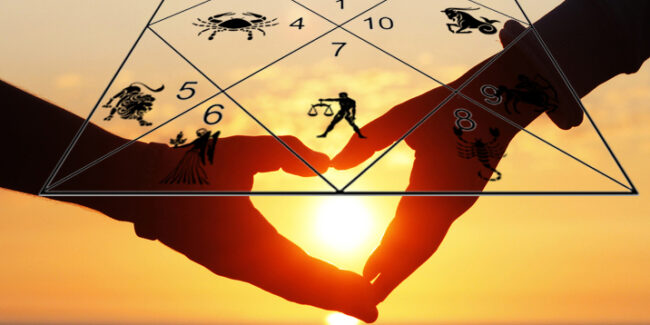
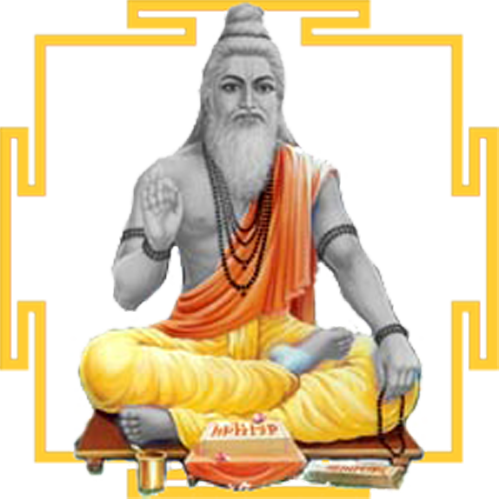 DBC offers online courses in jyotish (Vedic Astrology) taught directly by Sanjay Rath as per the tradition, through narrated power points and other audio tools. The courses are at different levels, from the beginners through the intermediate to the advanced and are known as SoHamsa | DBC courses, with individual classrooms and assistant teachers
DBC offers online courses in jyotish (Vedic Astrology) taught directly by Sanjay Rath as per the tradition, through narrated power points and other audio tools. The courses are at different levels, from the beginners through the intermediate to the advanced and are known as SoHamsa | DBC courses, with individual classrooms and assistant teachers
 Sagittarius Publications is the publisher and distributor the popular quaterly magazine the Jyotish Digest, as well as many thorough books on the subject of Vedic Astrology or Jyotish.
Sagittarius Publications is the publisher and distributor the popular quaterly magazine the Jyotish Digest, as well as many thorough books on the subject of Vedic Astrology or Jyotish. We have an excellent pandit Divākar ‘Deva’ Mishra, who is from the priests of Vindhyāvāsini Siddha Pīṭha to guide you through the hundreds of temples of Kāśi [Varanasi] and neighbouring regions. He can organise your pūjā, keep you safe and take care. He is supported by an English-speaking well-travelled spouse ‘Supriya Mishra’. Please contact them directly for any services, remedial pūjā and tours. They handled the 60+ member Kāśi Jyotiṣa Group 2022.
We have an excellent pandit Divākar ‘Deva’ Mishra, who is from the priests of Vindhyāvāsini Siddha Pīṭha to guide you through the hundreds of temples of Kāśi [Varanasi] and neighbouring regions. He can organise your pūjā, keep you safe and take care. He is supported by an English-speaking well-travelled spouse ‘Supriya Mishra’. Please contact them directly for any services, remedial pūjā and tours. They handled the 60+ member Kāśi Jyotiṣa Group 2022.